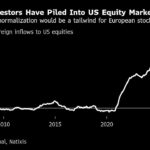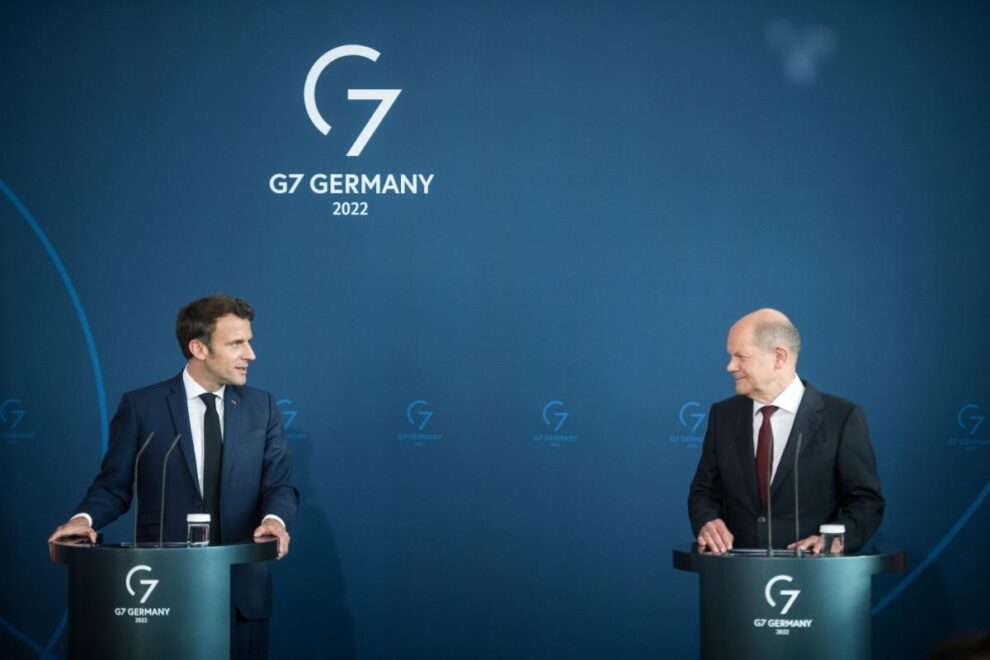
(Bloomberg) — Germany and France want the European Union to drive a wedge between President Vladimir Putin and the Russian people with a campaign to counter propaganda within Russia and a visa policy that signals Europe is still open to ordinary citizens.
Most Read from Bloomberg
In a joint non-paper titled “Defending the international order in an age of systemic rivalry: EU-Russia relations,” France and Germany say the EU needs to continue exploring “creative ways” to allow for the dissemination of independent information to and within Russia, according to a copy of the document seen by Bloomberg. A non-paper is an unofficial document drafted by technical experts from EU member states for closed-door discussions.
The countries also call for open channels of communication with the Russian government, even as they urge broadening sanctions against Russian officials and continued financial and military support for Ukraine.
The paper was circulated to EU member states ahead of a gathering of foreign ministers in Prague on Tuesday and Wednesday, where they’ll discuss the topic of a visa ban for Russian tourists. Baltic states have been pushing to ban EU visas to Russian tourists, but German Chancellor Olaf Scholz has urged more caution.
The Franco-German paper stresses the “transformative power of experiencing life in democratic systems at first-hand,” adding the countries’ caution against far-reaching restrictions on visas, “in order to prevent feeding the Russian narrative and trigger unintended rallying-around the flag effects and/or estranging future generations.”
‘Technical Measures’
The plan to counter domestic propaganda could include using “technical measures against Russian censorship, i.e. via an Internet Censorship Circumvention Hub,” the paper says, as well as providing Russian language content for Russian speaking minorities abroad. Another suggestion includes funding media literacy courses in Russian that could be disseminated by video bloggers on YouTube, Facebook, TikTok, Telegram channels and Vkontakte, the paper says.
Meanwhile, the EU should “retain certain channels of communication with Russia” to minimize the risk of unintended escalation and ensure “a minimum of cooperation” in areas of overriding interest, such as at the UN Security Council or over a nuclear deal with Iran, the Franco-German document says.
French President Emmanuel Macron’s frequent phone calls with Putin previously drew criticism he was too soft on the Russian president. The French leader has since defended the efforts saying he had hoped to find a path forward with Putin “via trust and reasoning.”
Most Read from Bloomberg Businessweek
©2022 Bloomberg L.P.






